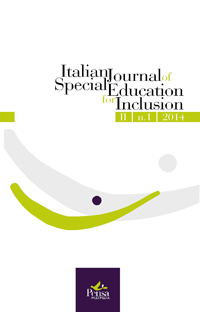Comunicación prosocial en familias e hijos con discapacidad
Abstract
On the term and concept of “prosocial” a remarkable range of topics is being investigated. On the contrary, about prosociality in form of communicative interpersonal interaction (prosocial communication), the bibliography is less abundant, although there is consensus in that prosocial communication favours well-being, it improves the quality of life, integration, it prevents and repairsviolence and it is a protective factor of a good relationship among the actors of any system. The present article addresses the principles that make prosocial communication and prosociality
operative regarding the culture of families with handicapped children. It is based on a previous and exhaustive bibliographical revision of prosocial communication, and it proposes a model that
articulates a list of principles and strategies, fruit of the experience accumulated through the programs of intervention of the group LIPA of Autonomous University of Barcelona during more than
30 years of applied investigation.
##submission.downloads##
Pubblicato
2014-11-04
Fascicolo
Sezione
I. RIFLESSIONE TEORICA (a. incontro con la storia; b. questioni epistemologiche)


